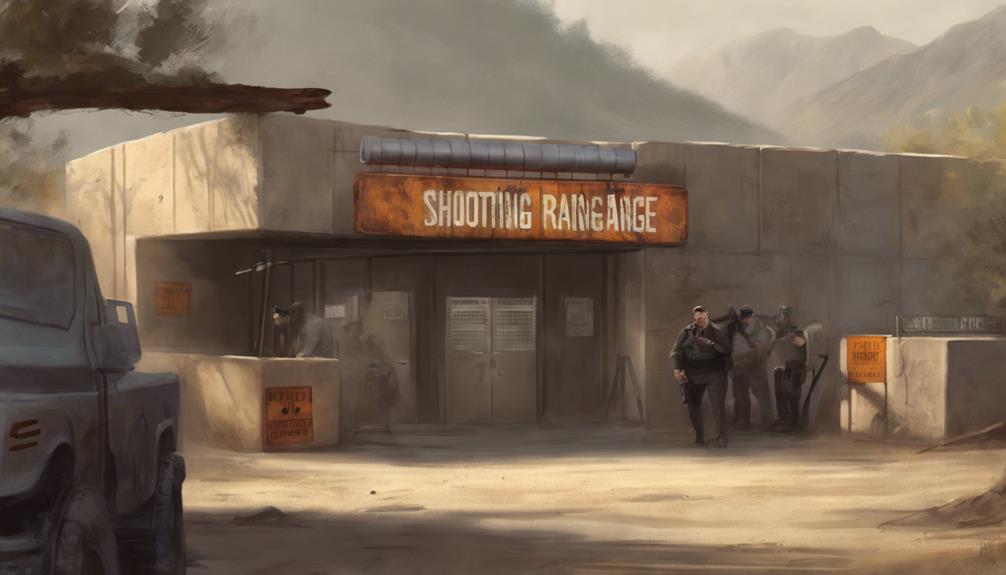Warrants, depending on their type, can appear on background checks for employment. This visibility can impact job opportunities greatly if left unresolved. Employers conducting thorough screenings are more likely to uncover open warrants of various kinds. Understanding the implications of different warrant types is important for individuals going through the hiring process. It's important to address warrant issues promptly to show responsibility and guarantee a smoother employment journey.
Key Takeaways
- Warrants, especially bench and criminal warrants, are likely to appear on standard background checks.
- Thorough screenings for certain positions may uncover open warrants.
- Search warrants for criminal investigations are typically not visible in standard checks.
- In-depth background checks increase the likelihood of disclosing various warrant details.
- Verify warrants, understand charges, and seek legal advice for effective resolution.
Types of Warrants

There are several common types of warrants that may appear on background checks for employment purposes. Arrest warrants, bench warrants, civil warrants, traffic warrants, and fugitive warrants are among the types that employers may come across when conducting background screenings.
Civil warrants are often related to non-criminal issues such as failure to pay child support, which may not always be included in standard criminal record checks. Traffic warrants, which can stem from unpaid traffic tickets, sometimes fall under the category of bench warrants and their visibility on background checks can vary depending on the type of search conducted.
While search warrants are commonly used in criminal investigations, they're typically not part of standard background checks as they aren't considered public records. Employers who deeply investigate an individual's background may uncover different types of warrants, which could impact the person's job prospects if these issues remain unresolved.
Do You Have a Warrant?
If someone suspects they might have an active warrant, it's important to address this issue promptly. Understanding the factors that determine warrant visibility, procedures employers follow upon discovering a warrant, and seeking guidance on resolving the warrant can be essential.
Knowing how to navigate these aspects can help individuals effectively address warrant-related concerns when it comes to employment background checks.
Warrant Visibility Factors
Factors impacting the visibility of warrants on background checks for employment vary based on the type and depth of the check conducted. When considering warrant visibility, the following play a role:
- Warrant Types: Different warrants, such as arrest warrants, bench warrants, and civil warrants, have varying probabilities of appearing on background checks.
- Check Type: Standard background checks may or may not reveal warrants for unpaid fines, like Capias Pro Fine warrants.
- Open Warrants: Employers conducting thorough screenings are more likely to come across open warrants during background checks.
- Depth of Checks: In-depth investigations, such as FBI or level 2 checks, increase the likelihood of uncovering various warrant types, including traffic warrants.
Understanding these factors is essential for individuals wanting to assess the potential visibility of warrants on their background checks for employment.
Employer Response Procedures
Employers establish specific protocols to address the discovery of a warrant on a candidate's background check during the hiring process. When faced with such a situation, employers must understand the type of warrant, verify its existence, and assess its relevance to the job role.
This process involves following legal guidelines and company policies, which may include consulting with legal counsel or human resources experts to guarantee compliance. It's essential for employers to take into account the nature of the warrant, its potential impact on the job responsibilities, and any legal obligations before making hiring decisions.
Applicant Resolution Guidance
Upon discovering a warrant on their background check, applicants are advised to promptly address this issue to avoid potential repercussions and seek guidance from legal professionals for effective resolution.
When faced with a warrant in the context of employment background checks, individuals should consider the following steps for applicant resolution:
- Contact a Criminal Defense Attorney: Reach out to a reputable criminal defense attorney in Denton, such as The Law Office of Brent D. Bowen, PLLC at 940-222-2488, for expert legal counsel on handling warrant-related issues.
- Seek Legal Guidance: Consulting with a legal professional can provide essential insights into resolving warrants proactively and efficiently.
- Act Swiftly: Taking prompt action to address the warrant can help prevent potential negative consequences and legal complications with a potential employer.
- Handle Matters Proactively: Resolving warrants with the assistance of legal counsel is essential for effectively managing legal issues and ensuring a smoother employment process.
Employer Considerations

When evaluating candidates with warrants on their background checks, employers must carefully assess the potential risks and legal implications. Employers need to weigh the types of warrants that may appear, seek legal advice to understand the implications, and make sure compliance with state laws.
Different job requirements may necessitate varying levels of scrutiny regarding warrants on background checks, particularly for positions involving security clearances or sensitive information. Geographic restrictions can also impact the visibility of warrants on background checks, making it crucial for employers to be aware of local laws.
During the hiring process, if a warrant shows up on a candidate's background check, employers should handle the situation diligently. This includes verifying the warrant, seeking explanations from the candidate, conducting additional checks if needed, and assessing the information in light of the job requirements.
Legal Framework
Understanding the presence of warrants on background checks for employment requires a sound grasp of the legal framework, including Federal Laws (FCRA) and State Laws. When delving into this legal landscape, considerations include:
- FCRA Regulations: The Fair Credit Reporting Act (FCRA) regulates the use of consumer information, including criminal history, in employment decisions.
- State Laws Variations: State laws may differ on the visibility of warrants on background checks, affecting what employers can legally access.
- Types of Warrants: Employers may encounter various warrants, such as arrest warrants and bench warrants, each with distinct implications for hiring processes.
- Legal Guidance: Seeking advice from a criminal defense attorney can provide insights into resolving warrants properly and minimizing the impact on future employment opportunities.
Navigating the nuances of warrants on background checks within the legal framework is essential for employers aiming to make informed hiring decisions while upholding legal standards.
Handling Applicants With Warrants

Employers should carefully assess applicants with warrants by verifying the type of warrant and seeking legal guidance. When a warrant appears on a background check, it's vital to confirm its existence, understand the charges, and determine the relevance to the job position.
Employers may need to conduct additional checks and follow specific procedures to address the warrant appropriately. Seeking legal advice can help navigate the complexities of resolving the warrant and addressing any underlying issues.
Understanding the types of warrants that may show up on background checks is important for employers to ensure compliance with federal and state laws. By taking these steps, employers can make informed decisions when considering applicants with warrants, balancing the need for a thorough background screening with fairness and legal considerations.
Impact on Background Checks
Applicants with warrants can greatly impact the outcome of background checks for employment, potentially influencing hiring decisions. When arrest warrants or bench warrants surface during background screenings, employers may have concerns regarding the applicant's reliability and trustworthiness. The presence of civil warrants or traffic warrants, which vary in visibility on background checks, raises additional considerations.
To navigate this issue effectively, individuals with outstanding warrants should take the following steps:
- Address Warrants Promptly: Proactively resolving any outstanding warrants can demonstrate responsibility and a commitment to legal compliance.
- Understand Legal Ramifications: Being aware of the legal implications of warrants on background checks is essential in preparing a suitable explanation for potential employers.
- Consult Legal Professionals: Seeking legal advice can provide insights on the best course of action to address warrants and mitigate any negative impact on job prospects.
- Impact on Hiring Decisions: Employers may weigh the presence of warrants differently based on the nature of the position, emphasizing the importance of addressing these issues promptly.
Understanding Warrants

Warrants can vary in visibility on background checks, depending on the type and jurisdiction.
Employers have obligations when it comes to handling warrants that appear on background checks for employment.
Understanding the factors that impact warrant visibility and employer responsibilities is important in managing this aspect of the hiring process.
Warrant Visibility Factors
Visibility of warrants on background checks varies depending on the type of warrant issued and the depth of the background check conducted.
- Bench warrants and criminal warrants are more likely to show up on standard background checks compared to civil warrants or traffic warrants.
- Employers conducting thorough background checks for certain positions may have access to information about open warrants.
- Search warrants, which are used for criminal investigations, are typically not visible on standard background checks.
- In-depth background checks, such as FBI or level 2 checks, are more likely to reveal details about various types of warrants.
Individuals with warrants should verify their existence, understand the charges, and seek legal advice to resolve the issue effectively.
Understanding the visibility factors of warrants on background checks can help individuals take appropriate steps to address any potential issues that may arise during the employment screening process.
Employer Obligations Regarding Warrants
How do employer obligations regarding warrants impact the hiring process for certain job positions?
Employers conducting background checks must be aware of the various types of warrants that could surface, including arrest warrants, bench warrants, and civil warrants. The visibility of warrants on background checks can vary based on geographic restrictions, state laws, and the depth of the background check.
If a warrant appears during the screening process, employers are obligated to take specific steps, such as verifying the warrant, discussing the situation with the applicant, and potentially conducting further investigations.
When handling applicants with warrants, employers should carefully consider the relevance of the warrant to the job at hand and make informed hiring decisions based on the circumstances surrounding the warrant.
Next Steps
After identifying any warrants on a background check for employment, individuals should proactively take steps to address them in a timely manner. Seeking legal advice and resolving warrants through proper channels can help individuals navigate background check processes for employment.
Here are some recommended next steps:
- Consultation Today:
Schedule a consultation with a legal professional to understand the implications of the warrants and explore the best course of action.
- Take Proactive Steps:
Initiate the necessary legal procedures to address the warrants promptly and efficiently.
- Failure to Comply:
Understand the consequences of failing to comply with resolving the warrants, as this could negatively impact your job prospects.
- Pending Case:
Keep your potential employer informed if there's a pending case related to the warrants and provide updates as necessary to maintain transparency and credibility during the hiring process.
Frequently Asked Questions
How Long Do Warrants Last in Texas?
Warrants in Texas can last indefinitely until resolved through surrender or court proceedings. Bench warrants remain active until recalled by the court, civil warrants until obligations are met, traffic warrants until fines paid, and capias pro fine warrants until fees settled.
What Are the Background Check Laws in Texas?
Texas background check laws aim to protect candidates' rights and privacy. Employers must obtain consent, provide reasons for adverse decisions, allow disputes, and adhere to EEOC guidelines to prevent discrimination. Compliance is essential.
Will Pending Charges Show up on a Background Check in Texas?
Pending charges may or may not appear on a background check in Texas. The visibility of pending charges depends on the depth of the screening conducted by the employer. Applicants should be ready to address any relevant charges.
How Long Do Warrants Last in Indiana?
Warrants in Indiana can linger indefinitely, awaiting resolution or court cancellation. Bench warrants for non-appearances persist until addressed. Arrest warrants for crimes endure until the individual is caught or resolves the issue. Fugitive warrants may lack expiration until capture.
Do Warrants Have an Impact on Employment Background Checks?
Employers often include warrants on background checks to ensure they’re making informed hiring decisions. A warrant on a background check could raise red flags and impact employment prospects. However, not all warrants are created equal, and employers must consider the context and relevance of any warrants found in the background check process.
Conclusion
To sum up, while warrants may not always show up on background checks for employment, it's important for both employers and applicants to be aware of the potential implications.
Like hidden treasure waiting to be discovered, unresolved warrants can unexpectedly surface and impact job opportunities.
It's essential for individuals to address any outstanding warrants promptly to avoid any obstacles in their career path.









